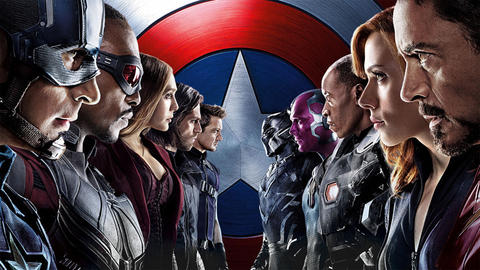
While the Marvel Cinematic Universe may be the most successful franchise in the entertainment history, it took years before the MCU made strides in the diversity department. It took fifteen movies until a lead in an MCU film wasn’t a white man. Black Panther was the first Marvel Cinematic Universe film that featured an African American lead, and Captain Marvel was the first female-led MCU movie. Before Black Panther, all of the POC roles were relegated to supporting characters, such as Falcon or War Machine. According to Bruce Banner/Hulk actor Mark Ruffalo, Marvel Studios President Kevin Feige was set to leave Marvel if Disney refused more diversity for the Marvel Cinematic Universe.
The upcoming fourth phase of the Marvel Cinematic Universe, which was delayed due to COVID-19, is set to be the most inclusive period in the history of the entertainment conglomerate. 2021’s Black Widow, the next first film in phase four, will be the second female-led entry in the Marvel Cinematic Universe. Shang-Chi and the Legend of the Ten Rings, which will be the first Marvel Cinematic Universe film with an Asian lead, recently wrapped production and is set for a July 2021 release date. Disney+ has recently cast the lead for Ms. Marvel, the first on-screen Muslim character in the Marvel Cinematic Universe.
New studies indicate that lack of diversity costs Hollywood hundreds of millions of dollars on an annual basis. Films like Black Panther and Crazy Rich Asians demonstrated that movies with racially-diverse casts can become enormously successful at the box office. While Disney and Marvel have certainly taken note of the box office benefits of diversity, the MCU still has a long way to go. Falcon star Anthony Mackie, who is currently in the midst of filming Disney+’s Falcon and The Winter Soldier, expressed his desire to see the Marvel Cinematic Universe embrace more diversity. Tessa Thompson’s Valkyrie is possibly the first LGBT+
character in the Marvel Cinematic Universe, and will be reappearing in the upcoming Thor: Love and Thunder.
While Avengers: Endgame was a climatic culmination of the Marvel Cinematic Universe, the entertainment conglomerate shows no signs of stopping, even though it has been delayed due to the pandemic. Black Widow will be the next film in the Marvel Cinematic Universe, which has been delayed by a full year due to the pandemic. Following Black Widow will be films with heavily diverse casts, Marvel’s Eternals and Shang-Chi and The Legend of the Ten Rings. Marvel is also expanding into television with Disney+, with Wandavision and Falcon and Winter Soldier becoming the first television series in the Marvel Cinematic Universe.
According to comic book expert Claire Lim, comics have been a trailblazing medium for both diversity and inclusion. In the comics, characters such as Black Panther’s younger sister Shuri get the spotlight treatment, and writers such as Ta-Neshi Coates worked with Marvel Comics. LGBT+ representation is heavily prevalent in comic books, while it’s nearly non-existent in the current landscape of superhero movies. Both film and television have been slower to incorporate them. Yet harassment in nerd culture is commonplace, and actors like Kelly Marie Tran from Star Wars and Anna Diop from Titans have become the most well-known victims of this issue.
You must be logged in to post a comment.